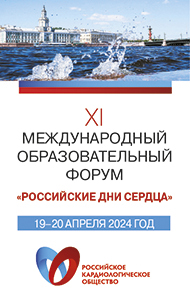Analysis alleges excess deaths among women avoiding HRT
New Haven, CT - A study published last week reported that as many as 91 610 women may have died because they avoided posthysterectomy estrogen therapy [1]. Use of hormone replacement therapy (HRT) dropped steeply after a number of trials conducted over the last decade—most notably the Women's Health Initiative (WHI)—found increased risks of heart disease, stroke, and breast cancer, particularly among older women taking estrogen only or combined estrogen plus progestin therapy.
One of the principal investigators in the original WHI trial, however, says that this new analysis is an oversimplification that relies on an inconclusive secondary subgroup analysis from a 2011 WHI publication.
Aversion to HRT led to deaths
Authors of the new study, led by Dr Philip M Sarrel (Yale University School of Medicine, New Haven, CT), devised a formula to estimate total mortality among women aged 50 to 59 years who underwent a hysterectomy but did not take estrogen supplements afterward. The formula is based upon a preliminary subgroup analysis in the WHI Estrogen-Alone Trial (WHI-ET) published in 2011, which estimated 13 excess deaths per 10 000 women among those who took a placebo, rather than estrogen, posthysterectomy.
Sarrel and colleagues created a formula that took into account the total population of women aged 50 to 59 years from 2002 to 2011, the percentage of those women who underwent a hysterectomy during that time, and the estimated percentage decline in estrogen use in this age group during these years. Those figures were applied to the estimated mortality rate of 13 per 10 000 women per year from the 2011 WHI study.
"Our analysis suggests that between 2002 and 2011 a minimum of 18 601 and as many as 91 610 excess deaths occurred among hysterectomized women aged 50 to 59 years following the publication of the original WHI findings because of the resulting aversion to hormone replacement therapy of all kinds that ensued among doctors and patients alike," the authors write. "The actual toll of excess mortality is likely to be between 40 292 and 48 835."
Merely a "mathematical exercise"
In response, however, Dr JoAnn Manson (Brigham and Women's Hospital, Boston, MA) said that the study published online July 18, 2013 in the American Journal of Public Health presented no new data but was, rather, a "mathematical exercise" based on "findings that are inconclusive."
She explained that the 13 per 10 000 figure was from a subgroup analysis of "borderline significance" involving 3300 women—or about 12% of the total 27 000 women involved in the WHI study.
"There's a borderline significant reduction in all-cause mortality in the 50- to-59-year age group in the estrogen-alone trial," Manson said. "However, this is an inconclusive finding. It's a secondary analysis, a subgroup analysis, for an end point that was not one of the primary end points of the trial."
The trial's primary end points were coronary heart disease and invasive breast cancer.
In the 2011 publication, Manson and coauthors estimated 13 fewer deaths per 10 000 women among women aged 50 to 59 years who received conjugated equine estrogen (CEE) posthysterectomy compared with women who received a placebo. Postmenopausal women receiving the CEE regimen had a lower risk of death vs placebo (0.35% [n=65] vs 0.48% [n=89], respectively), for a hazard ratio of 0.73 (95% CI 0.53-1.0). Manson said an updated analysis of the WHI data could be published as early as this autumn.
"These findings are inconclusive, and it's also a very complex balance," Manson said. "Hormone therapy has a very complex balance of benefits and risk. Across all age groups, there is evidence of increased risk of stroke and venous thrombosis with at least oral estrogen."
"I do agree that the best candidates for hormone therapy are newly menopausal women with moderate-to-severe vasomotor symptoms, and if they have had a hysterectomy and can take estrogen alone, they may avoid the breast cancer risk," Manson said. "That does appear to be a subgroup of women who may be better candidates for hormone therapy. But it's still not a group that should receive hormone therapy routinely without consideration of their underlying risk factor status or whether the benefits are going to outweigh the risks."
Source: www.theheart.org


.jpg)



